Previous Projects
The Support Ukraine Initiative
A Project of the International Center for Mental Health and Human Rights in collaboration with the Trauma and Disaster Committee of the International Association for Group Psychotherapy (IAGP)
The Ukrainian Family
Marc Chagall, 1887 – 1985
In 2019, Dr. Caner Bingol, Trauma and Disaster Committee Chair of the IAGP invited Gaea Logan, CGP, FAGPA, Founder and Clinical Director of ICMHHR, to offer a trauma training in Istanbul and to join forces with a group of international trauma specialists to lecture at the Psychology Department at the State Pedagogical University in Vinnytsia, Ukraine. Even then, the atmosphere of war was high. The training was needed for caregivers and clinicians working with soldiers and civilians adversely impacted by the war with Russia after 2014. Today the need is overwhelming. Our Support Ukraine Initiative is offered to meet that need.
In the months preceding Russia’s recent invasion, feeling the imminent winds of war, Dr. Bingol again reached out to Gaea. She began to prepare trauma curricula and organize support for Ukrainian colleagues by adapting ICMHHR’s Acute Crisis Intervention Certification Training to the realities of the pending war: fierce combat, civilian attacks, mass evacuations, and a refugee diaspora that would be on par with WWII. By the time Putin invaded on February 24, 2022, her protocol had been translated into three languages: Russian, Polish, and Ukrainian, with support from the Eastern European linguistic team at the US State Department.
Since then, aided by logistical support from Dr. Bingol and the Trauma and Disaster Committee, Gaea made a multi-year commitment to Ukrainian colleagues remaining on the ground in Ukraine and those in the diaspora, providing ongoing support and online monthly training on a range of salient topics from experts in the field of trauma. (See below.)
American psychoanalyst Robert Stolorow, PhD developed the concept of “the loss of absolutisms” to describe his own lived experience of his world being shattered after the sudden death of his wife, rending asunder the basic trust that any tomorrow would be roughly the same as today. All of Ukraine is suffering from “the loss of absolutisms”.
It is to this profound personal and collective shattering that we wish to bear witness and help to heal.
Acknowledgements:
We are grateful for the generous commitment of time and expertise offered by our remarkable guest faculty. We are deeply indebted to the ongoing work of our Ukrainian translators, Olha Serha, MD and Anna Afinogevoffa, MA; Polish translator Natalia Piusinska and Russian translator Alighta Averbukh, without whom we could not do this work. None of this could be possible without the tireless efforts of our beloved colleague, Dr. Caner Bingol, MD, MPH, Trauma, and Disaster Task Committee Chair, IAGP- Istanbul. We also want to acknowledge the Ukrainian Psychological Association. We are also grateful to collaborate with the Ukrainian Psychological Association, OneUkraine, the International Office of Migration, and the International Association for Relational Psychoanalysis and Psychotherapy.
Beirut, Lebanon 8/2020 – 7/2021
On 4 August 2020, 2750 tons of ammonium nitrate from an abandoned ship in the port of Beirut, exploded, leaving over 200 dead, more than 6500 injured, over $15 billion in property damage, and an estimated 300,000 homeless. The tragedy hit Lebanon as the country was mired in its worst economic crisis in decades, with its currency plummeting, massive layoffs, and drastic banking restrictions. Panic was setting in.
At the two-week mark, Dr. Bingol ( Istanbul ) connected us with Dr. Jeanine Aboutaca ( Beirut ) to assess needs and develop a program to provide trauma training and resiliency support for a group of Lebanese psychologists along with the Chair of Disaster Relief, Hassan Mneimneh. The ICMHHR faculty delivered our eight-week online program Portable Calm.
As the weeks progressed the country moved into deep civil unrest. Necessary medicine and basic food supplies seemed almost impossible to purchase. Some members expressed concern that as US citizens, we may not be able to understand the suffering of the Lebanese people at this time, or what they have endured in their historical trauma context. After some reflection, Gaea wrote in response and shared it in the group:
“It is a very important question and one that I hope to answer here with humility, honesty, and compassion. I have never been to Beirut or Lebanon, so I cannot begin to know what it is like on the ground or to even come close to knowing your full experience of the Beirut you have known, loved, and served. I did not witness the devastation of the explosion at the port, nor the years of struggle before it and the fires that have continued to spark since. There are so many ways in which I cannot ever know your experience. But I listened deeply to what you described last week, the conflict- to breathe the air you are told NOT to breathe while learning a meditation that involves breath itself. The country and you, as a son or daughter of this beautiful land, are in an impossible situation. One that might hang on each breath, just to survive. Yet, by naming your experience and speaking your truth, no matter how difficult, you are helping me understand, and perhaps even helping yourself understand and be understood. and in doing so, you are no longer alone in your experience. In the United States, we have a terrible problem with racism. I will never know what it is to be a Black man or woman in this country. I have worked with war veterans and refugees escaping genocide – leaving behind everything they once knew. Yet, I am not afraid to face the inconsolable grief of those who have lost their children or spouses to death. Or to be with humanitarian staff who feel helpless about the scope of what they cannot control, or listen to the stories of torture survivors. It is true, that I have not had first-hand experience of these life experiences but my human heart tells me we are not so far apart.
Due to different details, I know the feelings of helplessness, hopelessness, and the agony of mourning. I remember my own terror of a cancer diagnosis with a poor prognosis and my fight for survival. I have tasted the endless heartbreak of our inhumanity towards one another. What remains is the feeling that I am here to serve, listen and share. And perhaps, if I may be so bold, to teach skills that are helpful, so that others may serve with more resilience in this, our suffering world. Since 1992, I have followed the political and trauma landscapes of the region, and specifically Beirut through journalism and Lebanese family friends. Before a team member joins me on an international training, I make sure they have followed at the very least, a brief history of the county, the city and the region to more fully understand the possibility of multi-generational trauma. But you are very right… Reading about a region’s catastrophic history is not the same as the “lived experience.” I believe that we can learn from each other in our listening, in co-creating a safe space, and together can build capacity and skills to survive even against the worst adversity. There is something, about working together in this with compassion and care, that can be deeply healing for us all. Can we be your partners in this work? Can I be a student learning from the knowledge of your experience?”
This exchange enabled us to truly become partners in the work. Together we forged a “relational home” a term borrowed by Robert Stolorow, PhD. After the initial eight-week training group, we continued to meet together for almost a year, bi-monthly and then monthly. The Istanbul cohort continued as a strong peer support group on What’s App. We were honored to have had the opportunity to learn from their experiences and share what we have learned along the way.
Boulder Valley Care Network, Boulder, Colorado – 2019 – 2020
The main goal for the adaptation of Portable Calm in the Boulder Valley Care Network was to help health care workers develop a daily mindfulness practice to address the overarching goal of improving self-regulation and resilience in the face of challenging work. Our faculty member, Elizabeth Driscoll, taught two iterations of the Portable Calm program.
The first consisted of six in-person group sessions for a core group of about 30 participants over nine months. The Colorado Leeds School of Business ran research on the core group and added a control group. At the end of the 9-months, the research indicated that participants who practiced the Portable Calm experienced fewer symptoms of depression and anxiety (in some cases, symptoms decreased from severe to low). In addition, during the 9-months, the Portable Calm group participants could more reliably utilize mindful awareness during stressful situations and reported improved day-to-day mental health than the control group.
Then in the summer of 2020, as the Covid 19 pandemic exploded, Elizabeth offered an additional online adaptation of the Portable Calm to 8 physicians and nursing staff on the front lines.
At the end of 8 weeks, one participant shared:
“I surprised myself, but it feels true…now it feels as though the “calm” has taken over as my foundation.”
We were honored to be invited to participate in the project, offer an adapted curriculum, and be part of a research effort to more fully connect the dots between simple practices, improved resilience, and decreased symptoms among medical professionals on the frontlines.
Vinnytsia, Ukraine – 2019
After the training in Istanbul, Dr. Bingol Chair presented the CBTRT protocol to the Mykhailo Kotsiubynskyi State Pedagogical University in Vinnytsia, Ukraine in October of 2019. He shared this with us after his presentation:
Dear Gaea and Patricia,
I am here in Ukraine, Vinnytsia City, presenting at a conference about Care for Caregivers; Trauma and Resiliency. Can you see this beautiful image of all 100 participants from the Psychology Department of the Pedagogıcal Unıversıty named M Koziubinski, Vinnytsia, Ukraine? We are doing the CBTRT compassion practices- sending compassion to the loved one and the difficult other… There is still an atmosphere of the war with Russia. All participants send love and respect to each of you…
#weshallovercome #vinnytsia #ukraine #trauma #care #posttraumaticgrowth #resiliency #psychodrama#grouptherapy #dralibabaogluinstitute
Then Dr. Bingol put together an amazing faculty to continue offering trauma training to the Psychology Department, inviting Gaea Logan to join the faculty. Gaea was honored to join such a remarkable team.
Istanbul, Turkey – 2019
In July 2019, Dr. Patricia Tollison and Gaea Logan, ICMHHR Founder, were invited by Dr. Caner Bingol, Chair of the Trauma and Disaster Task Force of the International Association of Group Psychotherapy ( IAGP ) to present our program on Contemplative-Based Trauma and Resiliency Training in Istanbul. It was an honor to be hosted by Dr. Bingol, his colleague Dr. Turabi Yerli, and to work with their community- a rich tapestry of clinicians- psychologists, social workers, early childhood educators, midwives, and physicians. We were very fortunate to have Seval Arslan, a remarkably skilled translator, navigate us across what could have been linguistic barriers between Turkish, Arabic, and English. The group was delightfully insightful, compassionate, and open, not only to the exploration of a new trauma paradigm but also to their own inner experience.
We shared from the lens of contemplative practice, neurobiology, and somatic intervention. We loved learning from Dr. Yerli, Dr. Bingol, and the group as they shared thoughtful insights, comments, and questions. Dr. Yerli and Dr. Bingol led the group in experiential exercises and rituals of their own. It was a privilege to have one of their deeply respected community members, known simply as The Professor, join us in a robust exploration of the neurobiological differences between compassion and empathy. We enjoyed Dr. Yerli’s challenge around research design and the meta-analysis of mindfulness studies. None of it would have been possible without Seval’s extraordinary translation skills.
Members from the Istanbul cohort continued to work with us in our online Portable Cam training. Our relationship with Dr. Bingol continued to deepen as we moved forward in collaboration, to provide trauma training to other regions, namely Lebanon and Ukraine.
“It was a really great meditation journey for me! … It made me feel really supported and powerful during the whole 8 weeks! … I believe this journey helped me to grow up on my calming side. Now I feel more engaged with that part of me. So it is very helpful to calm down myself, remembering several techniques that I learned in this training.
~ Firdevs, Istanbul, The Portable Calm training, 2019
Uganda – 2016-2022
Historical Context
Uganda is currently facing an overwhelming refugee crisis due to tribal wars and armed conflict in the neighboring nations of South Sudan, Congo, and Burundi. There are currently over 240,000 refugees in Uganda. Due to the refugee crisis, as well as drought, the food supply is strained in Uganda – South Sudan’s primary source of food. Security concerns in South Sudanese refugee camps have resulted in additional surges of civilians fleeing into Northern Uganda. The South Sudanese refugee crisis is a microcosm of the global challenge to skillfully and compassionately address trauma, not only for the refugee community but also for the humanitarian aid staff, peacekeepers, and the psychological and medical teams that work with them.
A Good Beginning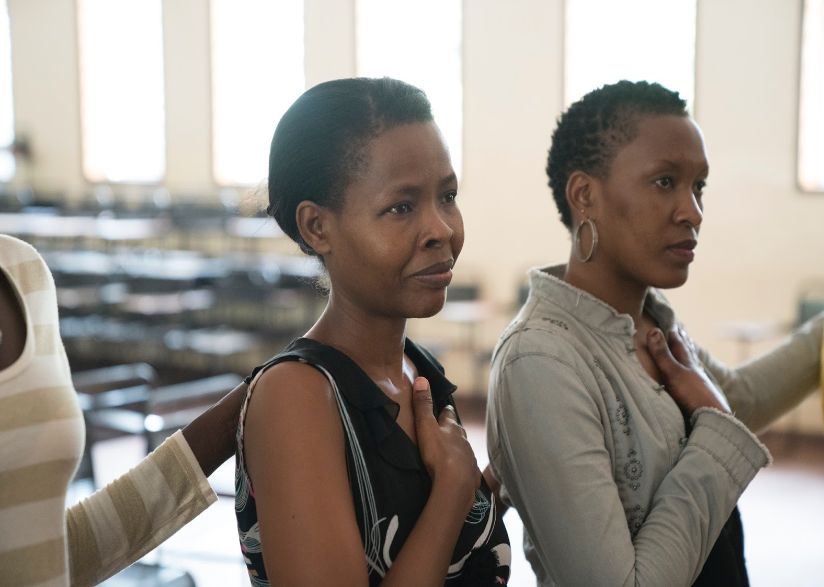 ICMHHR faculty Gaea Logan and Gina de la Chesnaye led a total of 79 male and female humanitarian aid workers, mental health professionals and/or legal workers from the Refugee Law Center in Kampala attended the ICMHHR training at Makarere University. Due to armed infiltration at one of the UN PeaceKeeping missions at the South Sudanese Border, twelve registered participants were unable to attend. The UN Peace Keepers barricaded staff headquarters inadvertently preventing the refugees from escaping which then resulted in a massacre. The Peace Keepers fled their posts. After the incident, refugees had little sense of security or sanctuary to call upon. Another surge of refugees poured into the camps of Northern Uganda.
ICMHHR faculty Gaea Logan and Gina de la Chesnaye led a total of 79 male and female humanitarian aid workers, mental health professionals and/or legal workers from the Refugee Law Center in Kampala attended the ICMHHR training at Makarere University. Due to armed infiltration at one of the UN PeaceKeeping missions at the South Sudanese Border, twelve registered participants were unable to attend. The UN Peace Keepers barricaded staff headquarters inadvertently preventing the refugees from escaping which then resulted in a massacre. The Peace Keepers fled their posts. After the incident, refugees had little sense of security or sanctuary to call upon. Another surge of refugees poured into the camps of Northern Uganda.
This tragic example is a testimony to what can happen during and in the aftermath of a critical incident: acute dysregulation resulting in the loss of executive functioning. The majority of our participants shared the experience of feeling overwhelmed and unprepared to work with refugee trauma. Few participants felt they understood how to work with trauma or prevent vicarious traumatization. They reported hearing countless stories of rape, beheadings, catastrophic loss, disease, starvation, and death. Many witness death in the camps. Most felt they would “burn out” but did not want their employers to know. Others, while stoic, complained of back pain, stomach aches, sleep disturbance, depression, anxiety, obsessive-compulsive rituals, explosive outbursts, and emotional numbing. No one knew the difference between emotional contagion, empathy, and compassion. Many suspected they might be re-traumatizing the refugees given their lack of interviewing skills. All acknowledged they did not have a consistent “self-care” practice or the ability to find sanctuary within themselves. The consensus was that it would be selfish.
Calm Creates Calm
At ICMHHR, we believe that “calm creates calm.” Mental health professionals and humanitarian aid workers must start with themselves if they are to create a calm environment. Refugees cannot find their calm in the midst of the storm if the staff cannot. Without specific training, self-regulation skills can be out-stripped by the enormity of the stressor. The risk of burnout in the humanitarian field is great – and even greater – if the staff is working in an environment or culture that is not trauma-informed.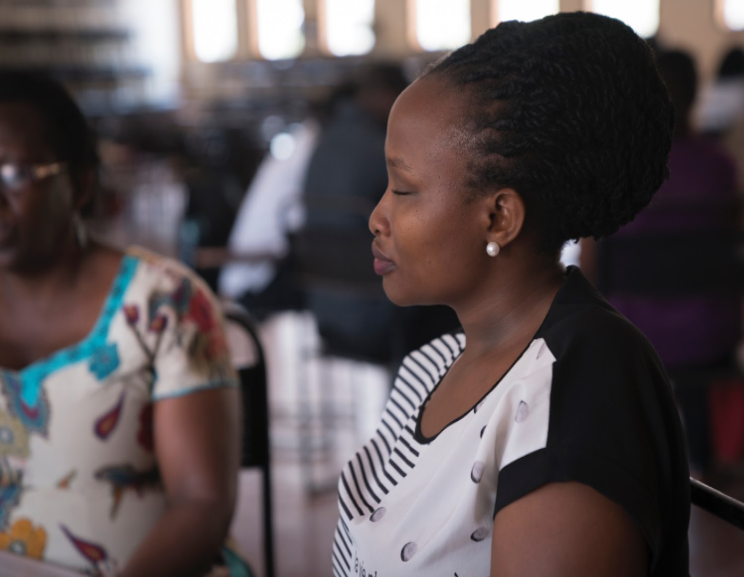
Our definition of trauma lies in the differential between the brain’s emergency circuitry and the body’s ability to self-regulate. Our program, at the intersection of neuroscience, contemplative science and group psychotherapy, is designed to help strengthen self-regulation skills for humanitarian aid workers, mental health professionals and refugees.
Outcomes of the Makarere Training
In qualitative feedback, participants shared that they felt more knowledgeable about trauma and were excited to return to work to implement the training. Equipped with CBTRT skills and their own efforts at self-regulation, participants felt they could be a resource to themselves, colleagues, and refugee/client populations because they could calm themselves. Many reported physiological indicators of stress reduction; decreased back pain, shoulder stress, stomach upset, anxiety, improved sleep, and mood after the 4 day training.
All felt that the training and CBTRT certification would be helpful for present and future employment. Fifty of the original participants enrolled in the 8-week Portable Calm follow- up program with the goal of establishing a daily contemplative practice and becoming a CBTRT Level 1 Instructor. (curriculum below)
Next Steps
ICMHHR’s field manager has identified 16 NGO’s working in the camps of Northern Uganda to conduct a pilot study of the efficacy of CBTRT (see metric below) Depending upon outcomes, the plan is to expand curriculum based on the CBTRT model throughout the UN network in Jordan, Kenya and the EU with funding from the UN Foundation.
Program Structure
Contemplative Based Trauma and Resiliency Training
The CBTRT 4-day training includes:
1) Basics in the neurobiology of trauma
2) Contemplative practices that strengthen self-regulation and neural integration: breath-work, sanctuary, intention setting, yoga, grounding/mindful awareness, compassion practice, therapeutic writing
3) Instruction on trauma-sensitive group intervention for adults and children in individual and group settings. Participants attending all sections of the training receive the CBTRT Basic Certification.
CBTRT Instructor Level 1: Level 1 Instructors must complete the initial CBTRT training and then the 8-week Portable Calm.
The Portable Calm is an asynchronous distance learning program with weekly “on the cushion” and “off the cushion” instruction. The goal of the Portable Calm is to support a daily contemplative practice. The “group contract” is to post 1-2 times weekly via the weekly email thread, in a learning cohort.
Level 1 Instructors are enabled to teach the CBTRT 8-week curriculum for children (Calming Minds) and adults (Portable Calm)
CBTRT Instructor Level 2: Level 2 Instructors have completed Level I requirements, specific graduate school training in the helping professions, 300 hours of CBTRT clinical supervision, and demonstrated effective teaching/ training capacity. Certified Level 2 Instructors can lead CBTRT training for humanitarian aid workers and mental health professionals globally.
Training Resources
Pathways to Neural Integration – Powerpoint
The CBTRT Field Manual includes:
1. The Portable Calm
On the Cushion
Focus on the Breath Sanctuary
Intention Setting Yoga
Grounding Compassion Practice
Off the Cushion – throughout the day
Return to the breath
Noticing beauty, gratitude
Tracking intention/choice points / journaling Noticing sensation
Returning to the moment
Noticing the quality of relationships
2. Calming Minds: 8-week CBTRT group curriculum for children
3. Index:
Arousal Assessment Grounding Script
10 Mindful Movements for Kids
10 Trauma Sensitive Yoga Poses for Adults
Additional educational videos and podcasts are in production
Metric
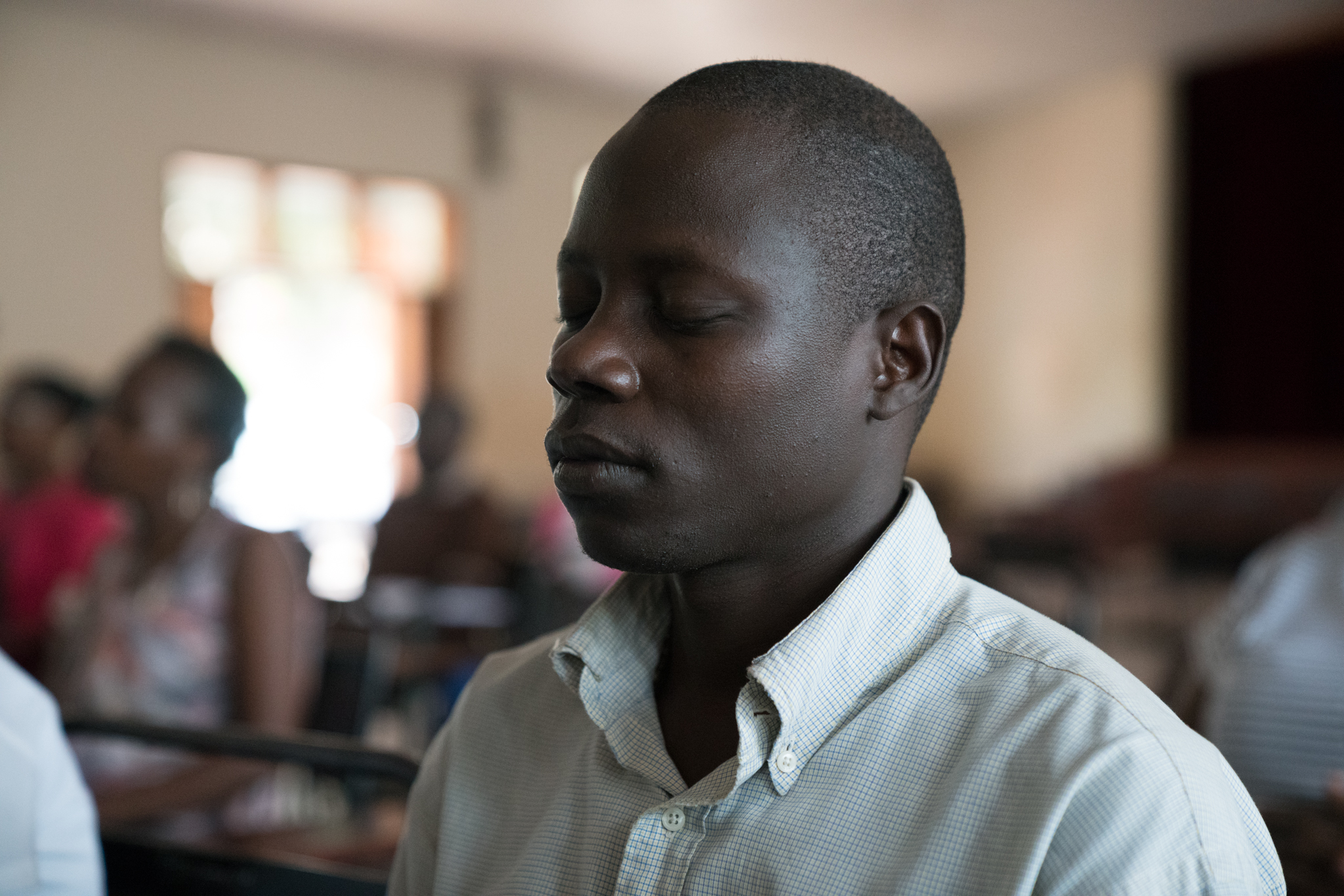 The aim of the study is to validate Contemplative Based Trauma Resiliency Training (CBTRT). We will conduct a simple T-Test study in order to see if the CBTRT curriculum has significant outcomes for the instructors. The curriculum is designed to reduce depression, anxiety, and trauma symptoms while increasing mindfulness. In order to measure this outcome, we will employ three standardized measures for the participants before they enroll and after they complete the curriculum. Our team will employ the Hopkins Symptom Checklist (HSCL), Trauma Symptom Inventory (TSI), and the Mindful Attention Awareness Scale (MAAS). All of these measures are self-report and can be administered in person or online. Our hypothesis is that there will be a significant positive correlation with the MAAS and a negative correlation with the HSCL and TSI from pre- to post-curriculum.
The aim of the study is to validate Contemplative Based Trauma Resiliency Training (CBTRT). We will conduct a simple T-Test study in order to see if the CBTRT curriculum has significant outcomes for the instructors. The curriculum is designed to reduce depression, anxiety, and trauma symptoms while increasing mindfulness. In order to measure this outcome, we will employ three standardized measures for the participants before they enroll and after they complete the curriculum. Our team will employ the Hopkins Symptom Checklist (HSCL), Trauma Symptom Inventory (TSI), and the Mindful Attention Awareness Scale (MAAS). All of these measures are self-report and can be administered in person or online. Our hypothesis is that there will be a significant positive correlation with the MAAS and a negative correlation with the HSCL and TSI from pre- to post-curriculum.
This initial study will act as a pilot to see if the curriculum has an effect on the participants. If our hypothesis is validated, we plan to expand our study over the next few years. We will aim to increase its validity by performing a between-group study. We will be comparing the pilot data to the data from future cohorts in order to strengthen our findings. Additionally, we will gather data from different populations and from different instructors in order to minimize the effects of confounding variables.
We intend to create a practice log in order to determine how the instructors integrate their CBTRT practices into their lives. This can open us up to a “within-subjects study” in which we can compare high and low practitioners.
Jim Lavelle of the Harvard Program in Refugee Trauma – Global Mental Health will be consulting with our research designer, Marc Azoulay, as we take our next steps.
Community Response Network (CRN)
In response to the devastating Texas wildfires of 2011, ICMHHR created the Community Response Network (CRN) to provide trauma training for educators and mental health professionals throughout several school districts in the Central Texas area. CRN links ICMHHR faculty and interns with other key local mental health professionals and offers a new paradigm in healing trauma based on the theoretical framework of the SSR model and its clinical implementation.
The SSR model stresses the primary importance of cultivating strategies for self-regulation for the caregiver. In the aftermath of the tragedy at Sandy Hook Elementary School, CRN returned to the Leander School District to conduct additional training in Acute Crisis and Trauma Prevention and is offering the training to mental health professionals locally, nationally, and internationally.
The Dukar Project
At the invitation of the Department of Health of the Tibetan Government in exile, ICMHHR developed The Dukar Project, a culturally sensitive, neuroscience-informed trauma recovery training program to address the multi-generational trauma associated with ongoing and prolonged human rights violations. The three-year program integrates mindfulness and compassion-based interventions and is informed by current neuroscience research, group psychotherapy, and traditional Tibetan medicine. The training was created for Tibetan health workers, social service workers, school teachers, monks, and nuns to help develop the clinical skills needed to assist individuals and families within the Tibetan exile community suffering from PTSD and developmental trauma (complex trauma), depression, anxiety and other symptoms painfully common to the refugee experience. The Center for Compassion and Altruism Research and Education, a division of the Stanford Institute for Neuro-Innovation and Translational Neuroscience at the School of Medicine will be collaborating with ICMHHR on research and implementation.
Based on the evaluative results of our efficacy research, we plan to implement this protocol with specific cultural adaptation for other “wounded communities” throughout the world, including our own homecoming veterans. To heal from the devastating impact of trauma enables individuals, families, and whole communities to become sustainable.
Click here to download a comprehensive PDF presentation of The Dukar Project.
Refugee Rights Initiative Program
International law students are currently assisting the development of a position paper for ICMHHR on the legal and moral responsibility of host nations to provide PTSD treatment for incoming refugees, particularly those who have endured the prolonged and ongoing stress of religious, ethnic, and political persecution or torture.
Tibetan Stories
Films Explore Human Rights and a Refugee Community from a Mental Health Perspective
(Austin, TX): Tibetan Stories, a new documentary web series consisting of monthly video portraits of Tibetan refugees, launches today via the website www.tibetanstories.org. The multimedia project is produced by The International Center for Mental Health & Human Rights (ICMHHR) and Kestrel Filmworks and highlights the personal struggles and aspirations of a wide diversity of Tibetans in exile.
At the invitation of the Health Ministry of the Tibetan government in exile, ICMHHR developed a trauma recovery training program for Tibetan health workers, doctors, and teachers working on the front lines of mental health-related issues within their community. Gaea Logan, internationally recognized psychotherapist and Founding Director of ICMHHR says, “Tibetan Stories raises awareness about the many faces of the refugee experience and honors the suffering and resilience of ordinary people who have found it necessary to flee their homeland for the hope of a better life. Refugees are not statistics. They are people … people who dream, who suffer, who hope, and who love.”
The series opens with The Monastery Cook about the head cook of a monastery in Dharamsala, India where the Dalai Lama resides and conducts regular teachings. As he prepares a meal for 5000 people, the cook discusses the trials as well as the courage of his own family. The other initial short film is The Graduates about two seniors from a school in a refugee settlement, who write and self-publish an independent newspaper. A new and unique film will be released every month throughout 2014. The website offers viewers either a three-minute, or a ten-minute version of each film.
Tibetan Stories is beautifully crafted by Russell Avery, an internationally recognized photographer and filmmaker who has worked with Terrence Malick and Academy Award-winning cinematographer Emmanuel Lubezki. “I was inspired by projects like The New York Times’s One in Eight Million and wanted to show a spectrum of narratives rarely seen by the international community, but which are vital to understanding the contemporary Tibetan experience in exile, while free of the romanticism or victimization often attributed to the Tibetan struggle,” said Avery. More work can be seen at www.kestrelfilms.com.
The International Center for Mental Health & Human Rights (ICMHHR) is a non-profit organization established to strengthen communities through trauma recovery while preserving a culture of human rights and dignity.
Media Contacts:
Thelma Young, Kestrel Filmworks (208) 599 2169
Gaea Logan, ICMHHR (512) 694 1393 gaea@icmhhr.org
Official Hashtags: #tibetanstories #icmhhr
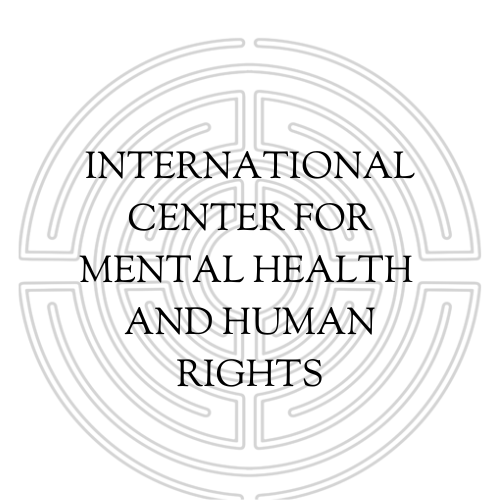
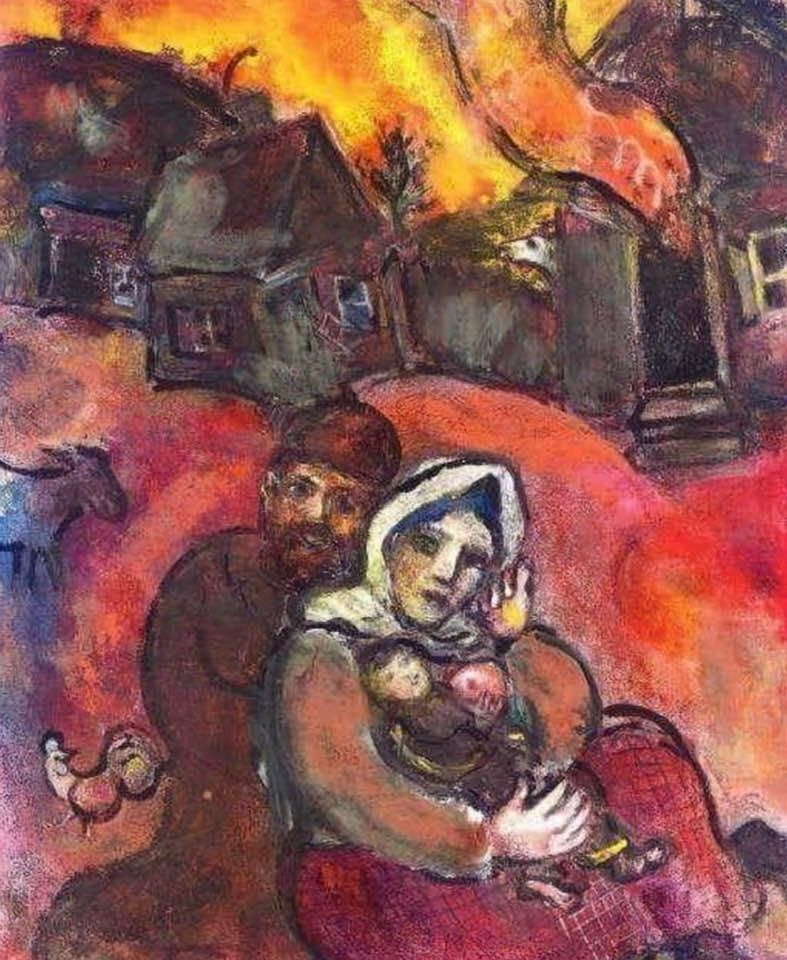

 Help Us Heal Wounded Communities
Help Us Heal Wounded Communities